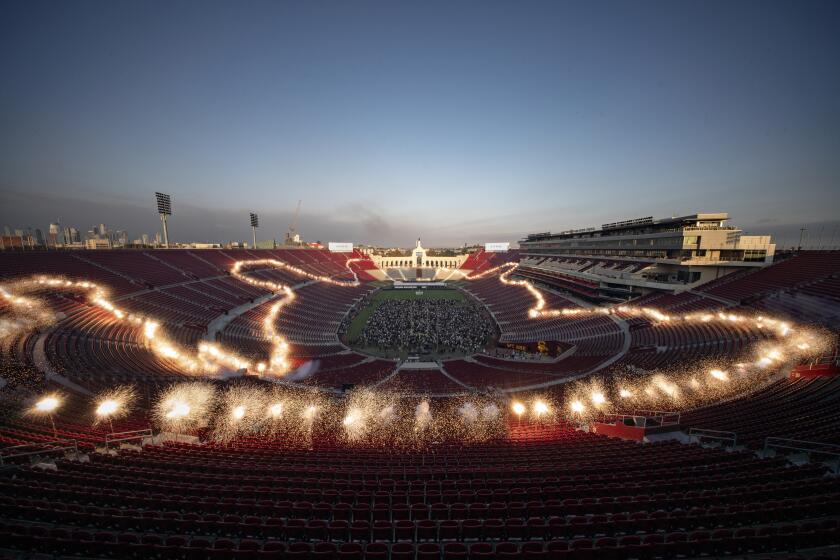A Collection of Miniatures From John Williams
The guitar world has changed enormously since John Williams made his debut in 1958, but his preeminent place in it is more secure than ever. He still sets a technical standard few can match, and has become an increasingly expressive artist.
His program Saturday at Ambassador Auditorium, however, was something of a throwback. A motley collection of miniatures, it offered many shining moments but little cumulative impact.
The brightest and best of these moments were concentrated on the second half. Central to its unifying obsession with triple meter was Williams’ fluent arrangement of Granados’ “Valses poeticos.” He exerted a highly individual effort here, seductively kinetic one moment, lurching in mannered over-interpretation the next.
Williams prefaced his Granados with Nikita Koshkin’s macabre, Shostakovich-like “Usher Waltz,” and followed it with Albeniz’s “Cordoba” and two pieces by Barrios, the last one the lone encore. A fleeting lapse in the Koshkin aside, his playing proved endlessly supple and pertinently controlled in both dynamics and color.
The guitarist began with the Five Preludes by Villa-Lobos, dispatched with almost cursory virtuosity, blurring rhythms and understating character. He also began unattractively amplified, but that mercifully abated.
Stephen Dodgson’s “Fantasy-Divisions” provided opportunity for astringent doodling, seized with articulate energy. A set of lute transcriptions from Weiss and Williams’ arrangement of Vivaldi’s Concerto in D, Opus 3, No. 9, completed the generous program.
Always direct and assured, Williams relied on casual elegance that often smoothed out distinguishing quirkiness, as in the Weiss group. But the ability to lull through facility--misplaced though it was at times--should not be underestimated in a field where just getting down the notes challenges most entrants.
More to Read
The biggest entertainment stories
Get our big stories about Hollywood, film, television, music, arts, culture and more right in your inbox as soon as they publish.
You may occasionally receive promotional content from the Los Angeles Times.










